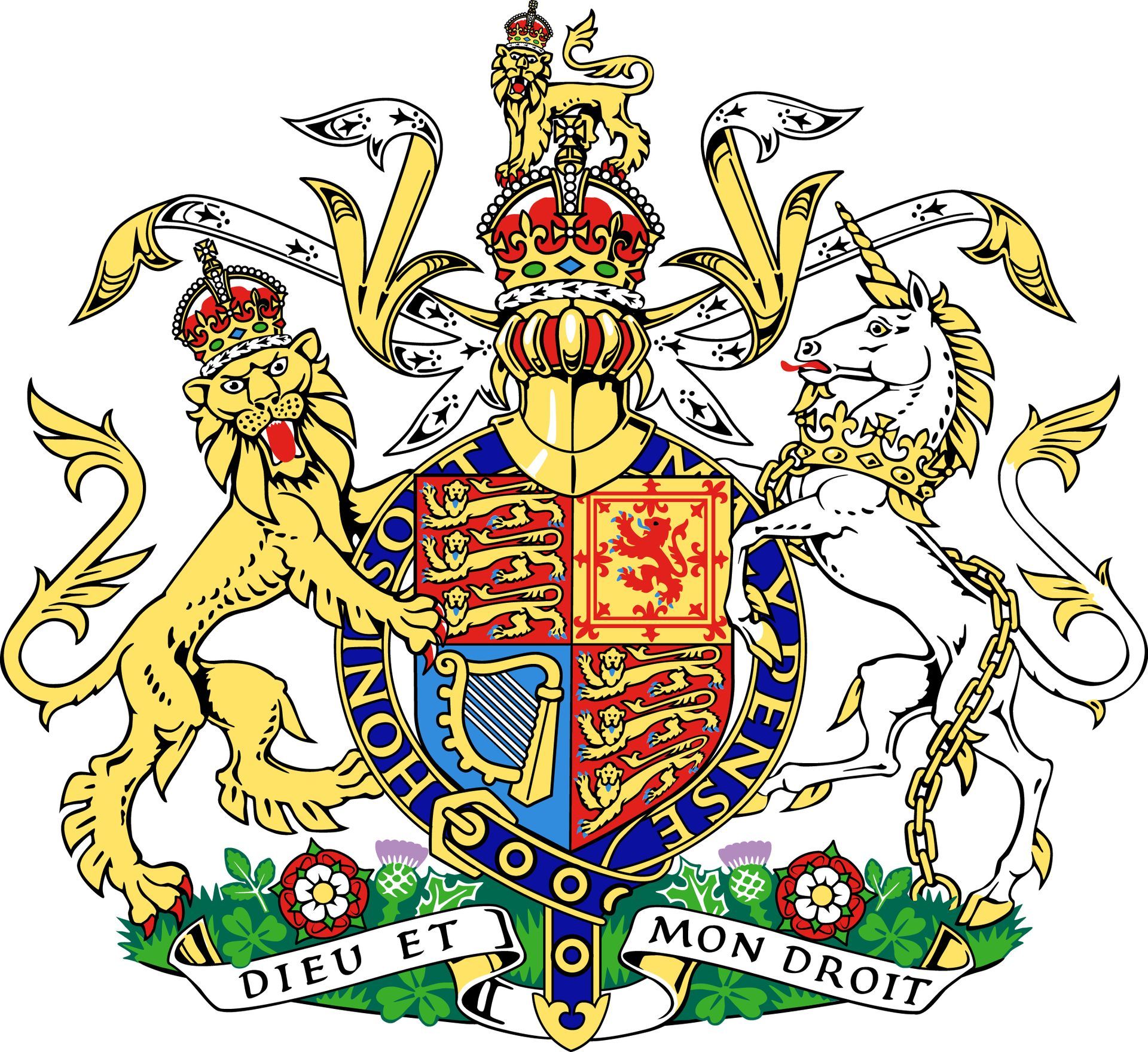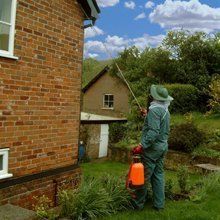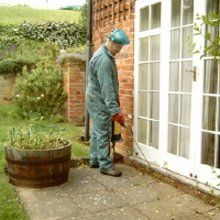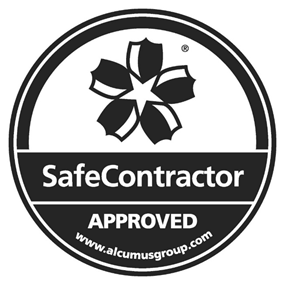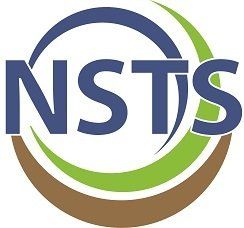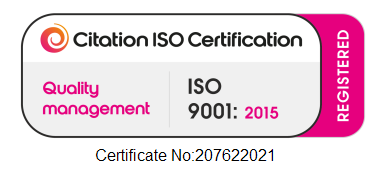Wasp Nest Removal
Call to Remove Wasp Nests From Your Home Safely
In the spring and early summer wasps can be beneficial because they feed on other insects in the area. However, when wasps build their nests too close to humans, they can become a nuisance. Treating the nest is the best way to eradicate your property of wasps. Turn to Command Pest Control for professional wasp nest treatment services.
Our qualified professionals are happy to serve clients from Suffolk, Norfolk, Essex, Cambridgeshire and the surrounding counties.
Signs That You Have a Wasp Infestation in Your Home
Wasps are one of the worst pests to deal with after they infest your property. Wasps are very aggressive by nature and can sting multiple times. They will work together to defend their nests if provoked, meaning their eradication should be done with care and as soon as possible. Learning to identify the signs of a wasp infestation can help with quick removal so you can enjoy your property safely once again. Common indications of wasp problems include:
• Increased Activity - As the weather becomes warmer outside, you may notice more insects around your property and that is normal. However, should you notice an increased amount of wasps that may be swarming around a particular area, be sure to contact a professional as soon as possible. When it comes to wasp removal, the sooner the action, the better.
• Chewed Wood - Some species of wasps build their nests using mud or clay, while others use paper materials. To source the paper, the wasps will chew small holes and tunnels in the wooden elements of your property. If you have noticed a ton of small bore holes on your home or business, the surrounding trees, or on your fences, it is best to contact a professional quickly.
• Nest Discovery - The most obvious sign of a wasp problem is when you discover their nest. Wasps will typically build their nests in areas that are sheltered and easy to defend. Therefore, removing them yourself can be very dangerous. A pest control expert has the knowledge, experience and tools to eradicate wasps regardless of where they are hiding.
• Chewed Wood - Some species of wasps build their nests using mud or clay, while others use paper materials. To source the paper, the wasps will chew small holes and tunnels in the wooden elements of your property. If you have noticed a ton of small bore holes on your home or business, the surrounding trees, or on your fences, it is best to contact a professional quickly.
• Nest Discovery - The most obvious sign of a wasp problem is when you discover their nest. Wasps will typically build their nests in areas that are sheltered and easy to defend. Therefore, removing them yourself can be very dangerous. A pest control expert has the knowledge, experience and tools to eradicate wasps regardless of where they are hiding.
Common Places Where Wasps Build Nests
Wasps nest locations and appearance will vary based on the species that created it. Social wasps make their nests above ground and they are usually spherical in shape, grey or light beige in colour, and have one entrance and exit hole. Solitary wasps dig their nests beneath the ground so only the entrance and exit hole will be visible. Regardless of their species, wasps prefer to build their nests in areas that are not normally disturbed.
Social wasps generally gravitate towards places such as:
• In Trees & Bushes
• Beneath Decks & Patios
• Under the Roof Eaves
• Behind Shutters
• Near Outdoor Light Fixtures
• Inside Unused Grills & Untouched Items
• On Playgrounds & Swing Sets
• In Any Small Cracks or Crevices
Solitary wasps can be found within the dirt and:
• Under Concrete or Asphalt Slabs
• Under Rocks
• Nestled in Fallen Branches or Logs
If you have noticed any signs of a wasp infestation on your property or have located a nest, contact Command Pest Control promptly for expert inspection and removal services. We serve clients throughout the Ipswich, Suffolk, Norfolk, Essex, Cambridgeshire areas and beyond.
Safe & Reliable Wasp Nest Treatment Services
Wasp nests can be easily identified by their open cells, paper-like texture and umbrella shape.
Learn how about how to identify a wasp nest and wasp activity in our blog.
Learn how about how to identify a wasp nest and wasp activity in our blog.
Throughout the warmer months wasps become more active:
• May -
This is when Queen wasps start to be reported and they are constructing nests often up to the size of a golf or tennis ball
• July - There are two principal species of wasps the Common and German wasp which are common this month. They feed on grubs, caterpillars and insects and are not normally a major nuisance at this time. There is a larger species which is spreading north called the Median or European wasp. This latter species often nests in trees and bushes and can be aggressive.
• August - At this time of the year wasps are frenzied sugar feeders and will enter buildings looking for anything sweet. Their nests have reached full size and the old Queen is producing new unfertilised Queens and drones in the nest. These will take over as next seasons Queens and will start building a nest next April from scratch.
• September - The old Queen is coming to the end of her life and although wasps are seen in October and November, the first frosts can kill off the colony at the end of this month and many are now feeding on fruit trees.
Do not try to remove a wasp nest yourself, wasps are naturally aggressive, especially when they feel threatened.
Learn more about Wasp Nest Removal in our blog.
Learn more about Wasp Nest Removal in our blog.
Our professional Technicians have years of knowledge and experience dealing with wasp nest removal of all types. Untrained removal can lead to property damage, depending on the location of the nest. Our experts can safely rid your property of wasps and their nest to eliminate the possibility of them returning.
Keep yourself, your family and your property safe by choosing Command Pest Control for wasp nest treatment! Our services extend to homeowners throughout Ipswich, Suffolk, Norfolk, Essex, Cambridgeshire and the surrounding counties. Contact us today.
Don't Try To Remove a Wasp Nest Yourself. Call Us Now.
Wasps can tend to be naturally aggressive, especially when they feel threatened or when something comes close to their nest. Due to their volatile tendencies, hundreds of wasps can begin to swarm and overwhelm the threat. A single wasp sting causes a significant amount of irritation and pain, but when stung by multiple wasps, the situation can potentially turn deadly. Unlike honeybees who can only sting once, then die; a wasp's stinger remains intact allowing it to continually inject venom.
Safety should be the number one priority when handling a wasp nest. If you are unable to access the proper protection equipment or strong enough chemicals to successfully eliminate the hive, you can put yourself and your family in potential danger. Additionally, many people who have not experienced a sting before may be unaware if they are allergic to a wasp's venom or not. This potential health risk is not worth the result.
Traditionally, people turn to the use of store-bought pesticide or chemicals when it comes to insect removal. While there may be a variety of chemicals and products to choose from, you cannot receive high-quality professional pesticide. In turn, you can further cause harm to yourself through chemical exposure from the store-bought product.
Call Us Now for Professional Wasp Nest TreatmentThroughout the Norwich, Norfolk; Suffolk & Essex Areas
At Command Pest Control, we have the professional training, equipment and experience to handle any nest. Our Technicians can determine a course of action to ensure a wasp nest is completely treated and that the wasps do not return in the future. For more information about our wasp nest removal and treatment services, please feel free to get in touch today. We proudly provide service to homeowners throughout the Ipswich, Norwich, Norfolk, Suffolk and Essex areas.
Step 1 - Call us now to arrange a survey of your home, at a time which suits you.
Step 2 - Our accredited Technicians carry out a tailored treatment on your home.
Step 3 - We'll give you the best advice to prevent further infestations.

